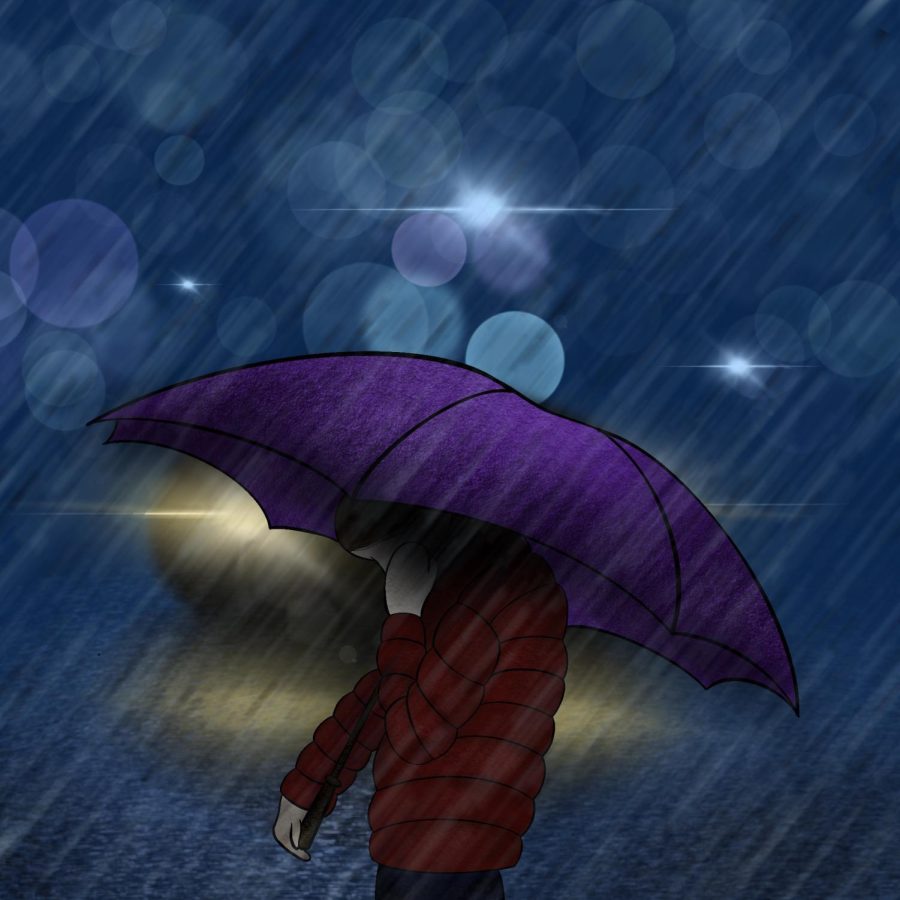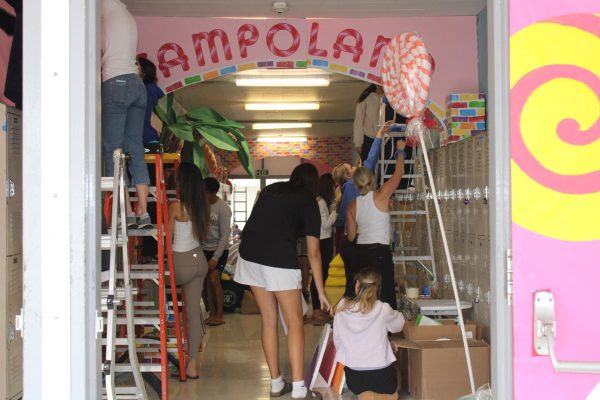Recent Storms Affect Campus Mood
Storms from mid January took a toll Campolindo students’ mental health.
The past few weeks have shown the Bay Area torrential downpours and windstorms like never before. Extreme flooding threatened to shut down schools and afterschool programs. As we were forced to stay indoors, you may have noticed an influx in feelings of sadness, loneliness, and fatigue. If this is the case, you aren’t crazy. Developing an understanding of how cloudy days impact our wellbeing can prepare us for the remainder of the winter months.
The way weather affects mood varies from person to person. However, feeling seasonally depressed is more common than you may think. It has been clinically proven that cold and rainy weather bring us sadness. Namely, a lack of sunshine causes a dip in serotonin and can depress our levels of Vitamin D. To compensate for this loss, our bodies tend to seek out comfort foods. Additionally, dark days bring about an increase in atmospheric pressure, which stresses the knees and joints, making us feel unmotivated.
What medical professionals coined seasonal affective disorder (SAD) is actually experienced by over 10 million Americans, according to the UTMB Health journal.
Junior Cassidy Keely said, “The rain was nice for a few days, but I’m getting tired of it.” Campolindo students are yet to experience this long of a rain season. Students like Keely aren’t used to the elongated absence of sunshine, which is taking its toll on mental health and wellbeing.
“The rain also makes everything take longer, which is annoying.” In addition to depressing our moods, the rainy environment makes daily tasks much more difficult and less efficient. The typical 15 minute drive to school now takes a whopping half an hour due to flooding, road closings, and cautious (rightfully so) drivers.
Senior Emily Floyd also expressed her frustration with the rain: “I feel like the sun gives me energy to feel motivated. The rain is definitely becoming a little depressing.”
So, biologically, our lack of sunshine decreases serotonin in the brain, leading to irritability and frustration. But don’t lose hope! There’s plenty of ways to shed light on our situation as we wait for the clouds to pass. Many Campolindo students have found solace in both scholastic and extracurricular activities.
Junior Avery Appleton said, “I’ve been watching a lot of movies recently. Staying indoors also gave me the opportunity to binge some of my favorite shows.” Sophomore Claire Birdsey said, “I’ve been doing a lot of baking…there’s so many recipes I’ve been meaning to try, and now I finally can!”
The pandemic quickly taught us how too much time indoors makes us prone to mental illness. Although the weather cannot be controlled, monitoring symptoms and finding ways to combat depression on cold, cloudy, and rainy days can help us take better steps to improve our mental health.
Your donation will support the student journalists of Campolindo High School's The Claw. Your contribution will allow us to produce more issues and cover our annual website hosting costs.

